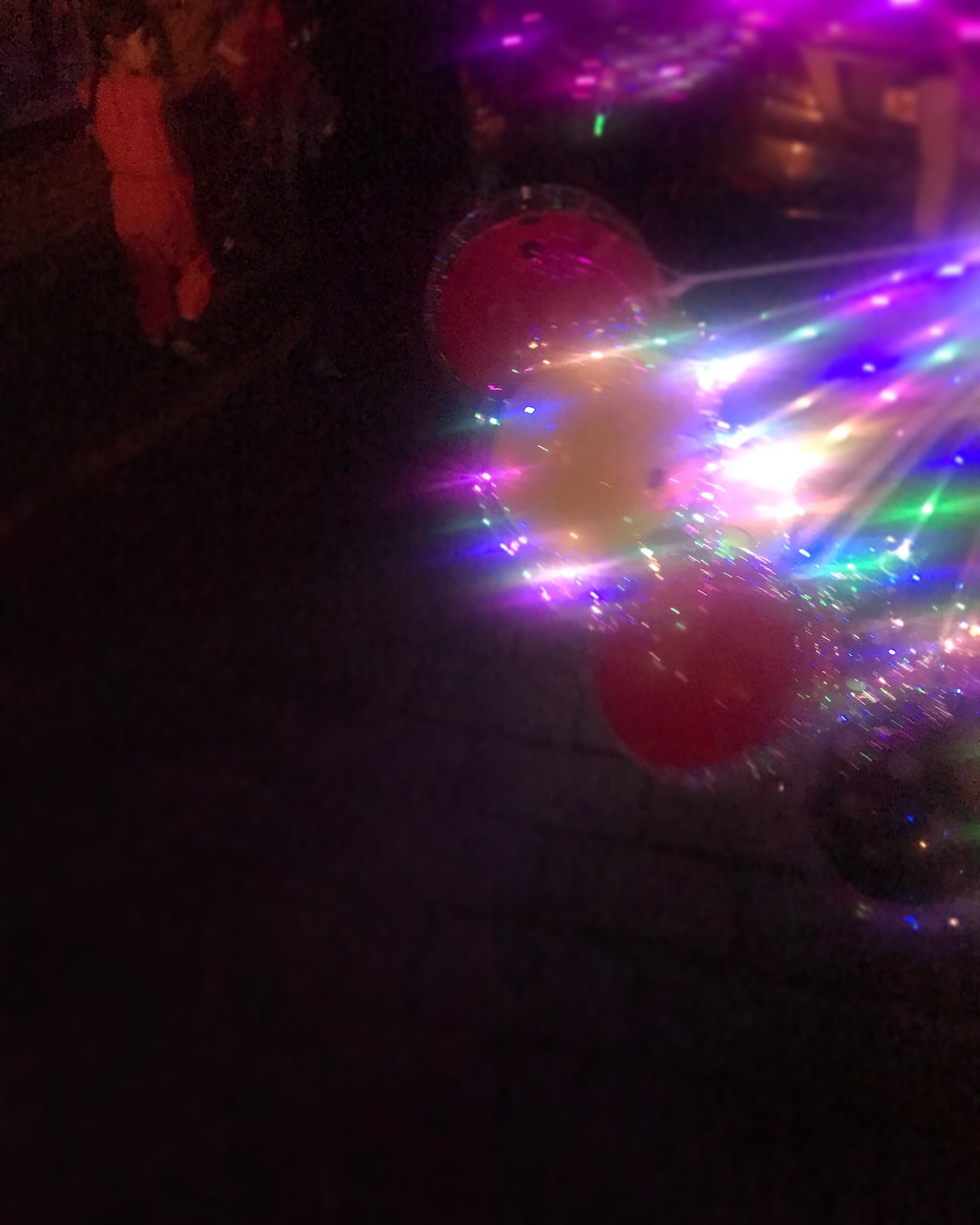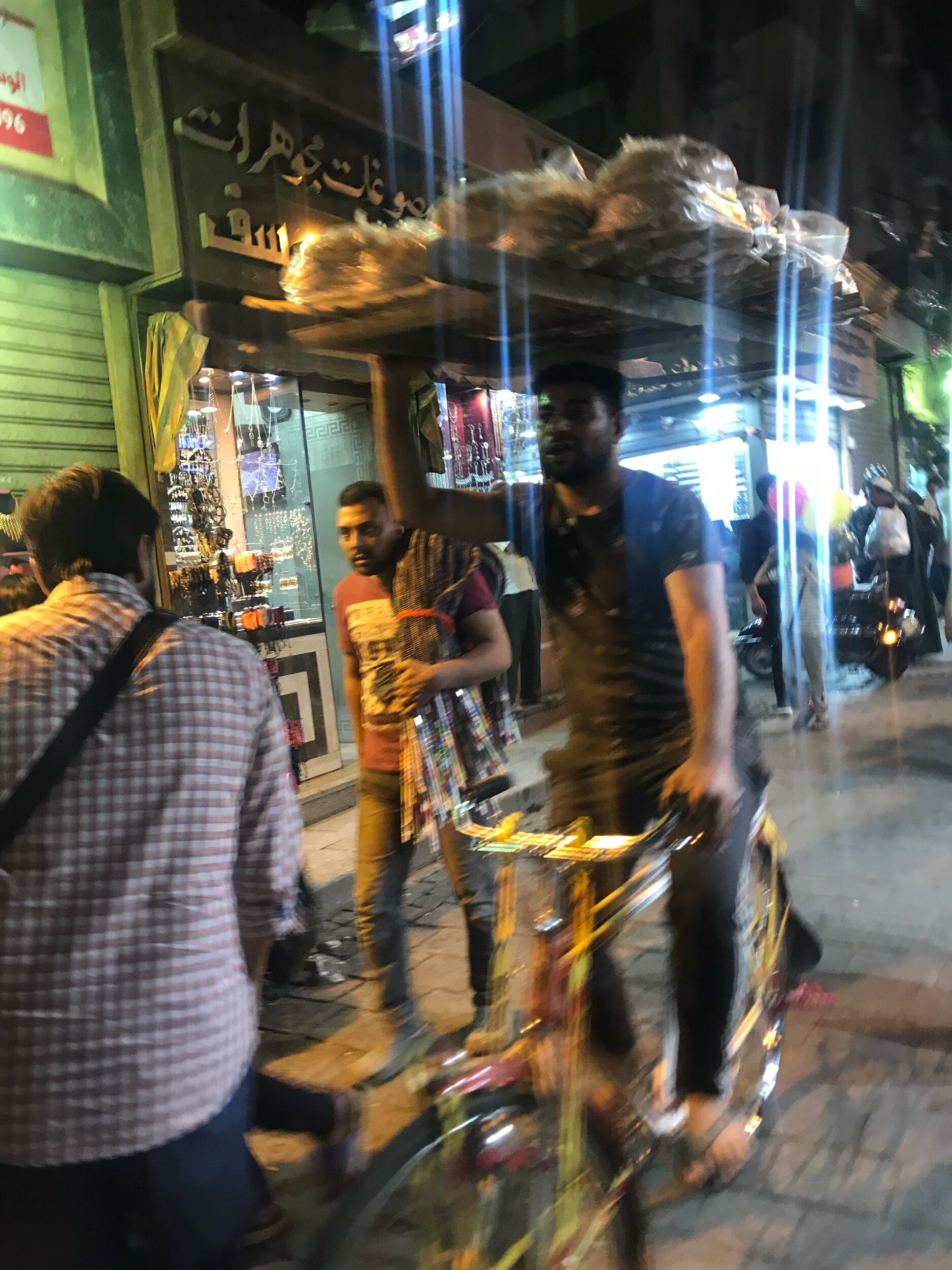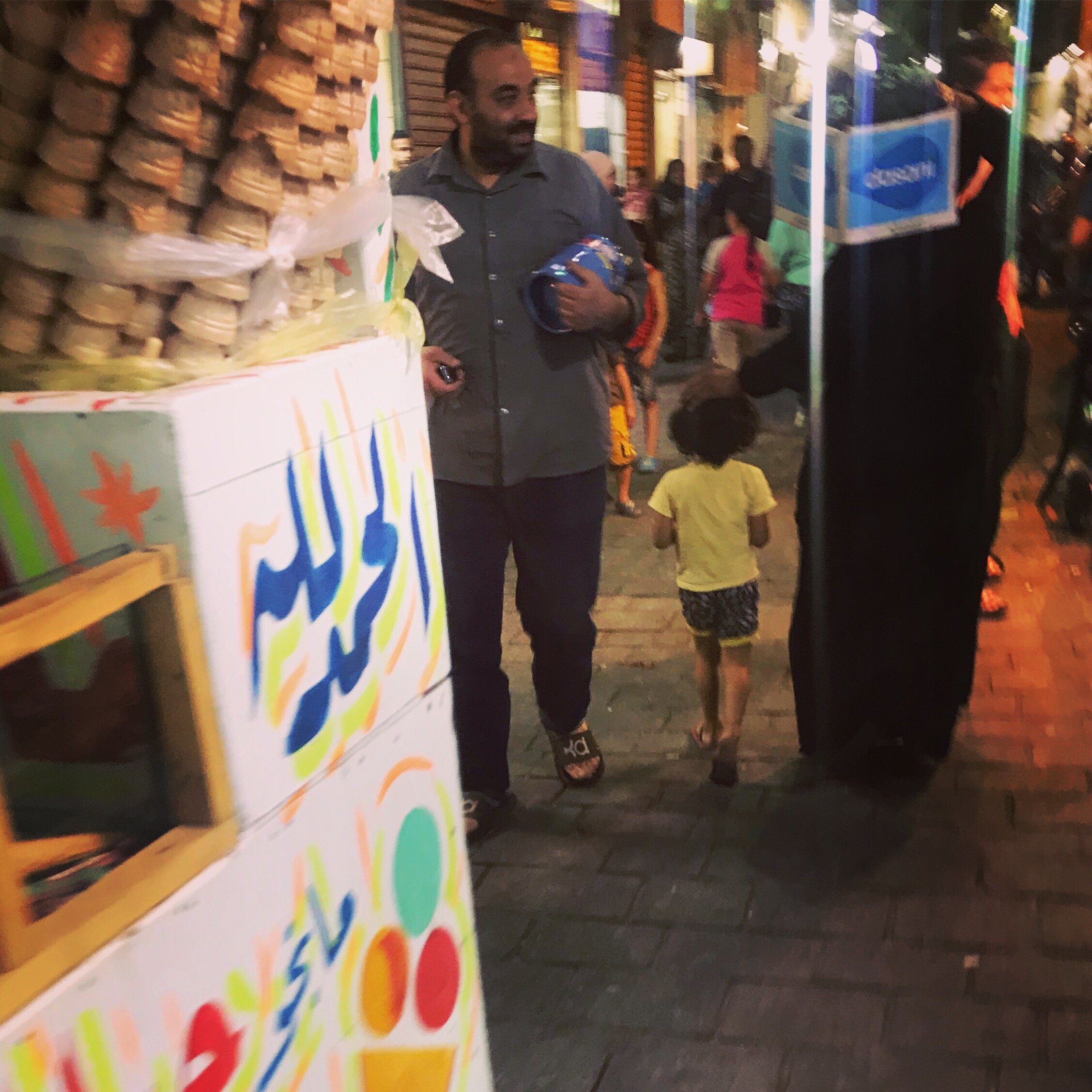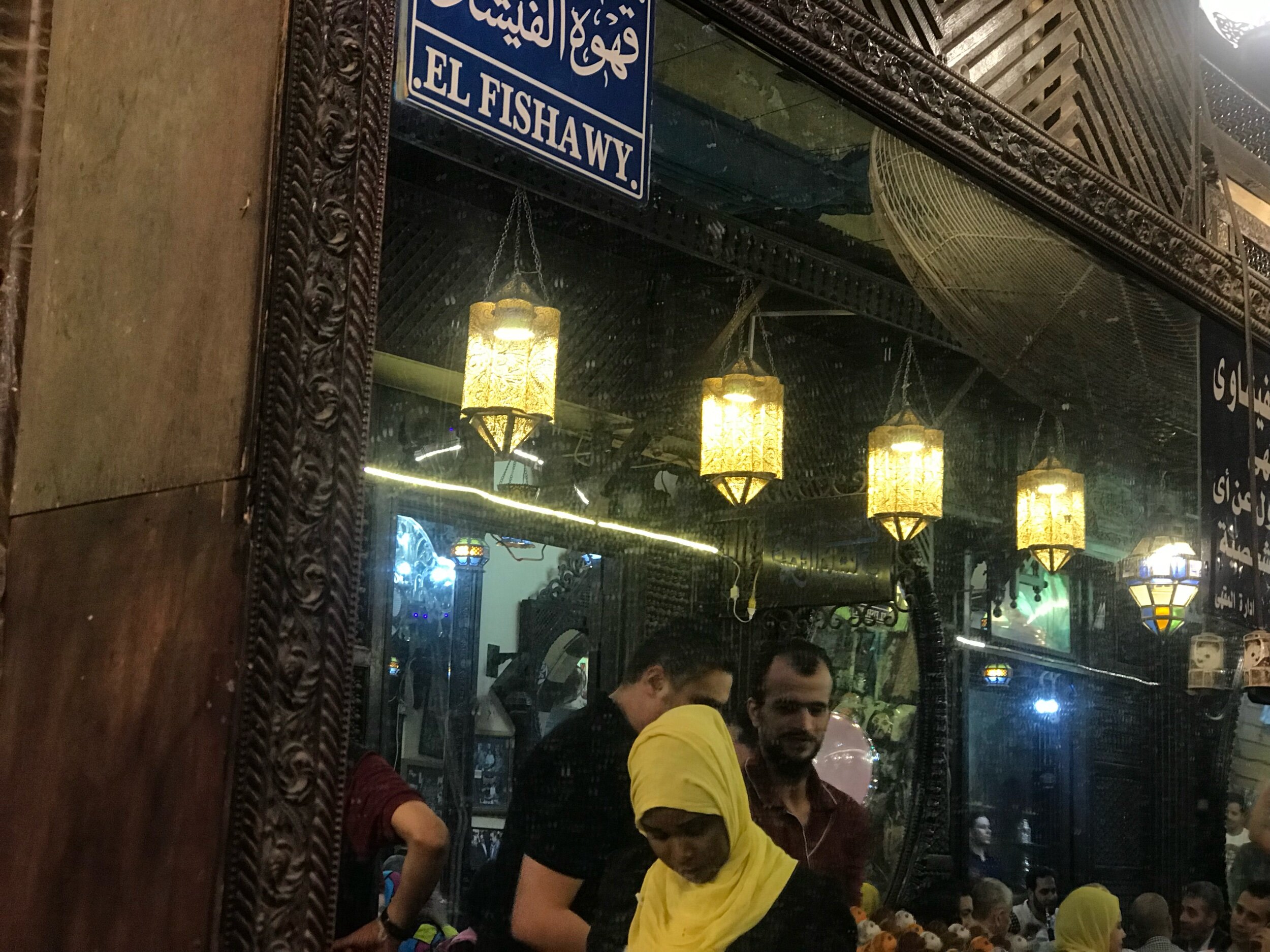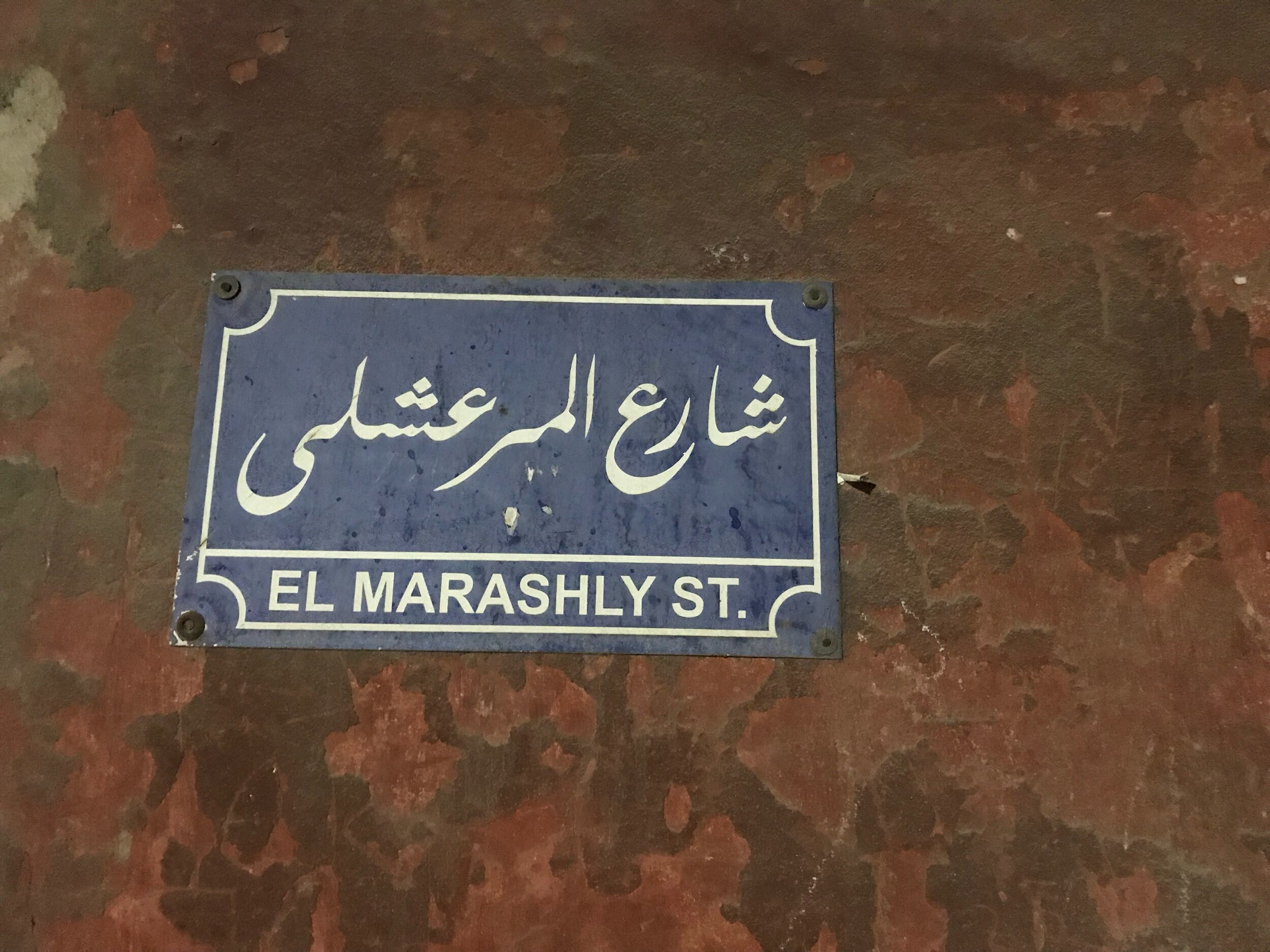Translating Cairo or Cairo Translating Me
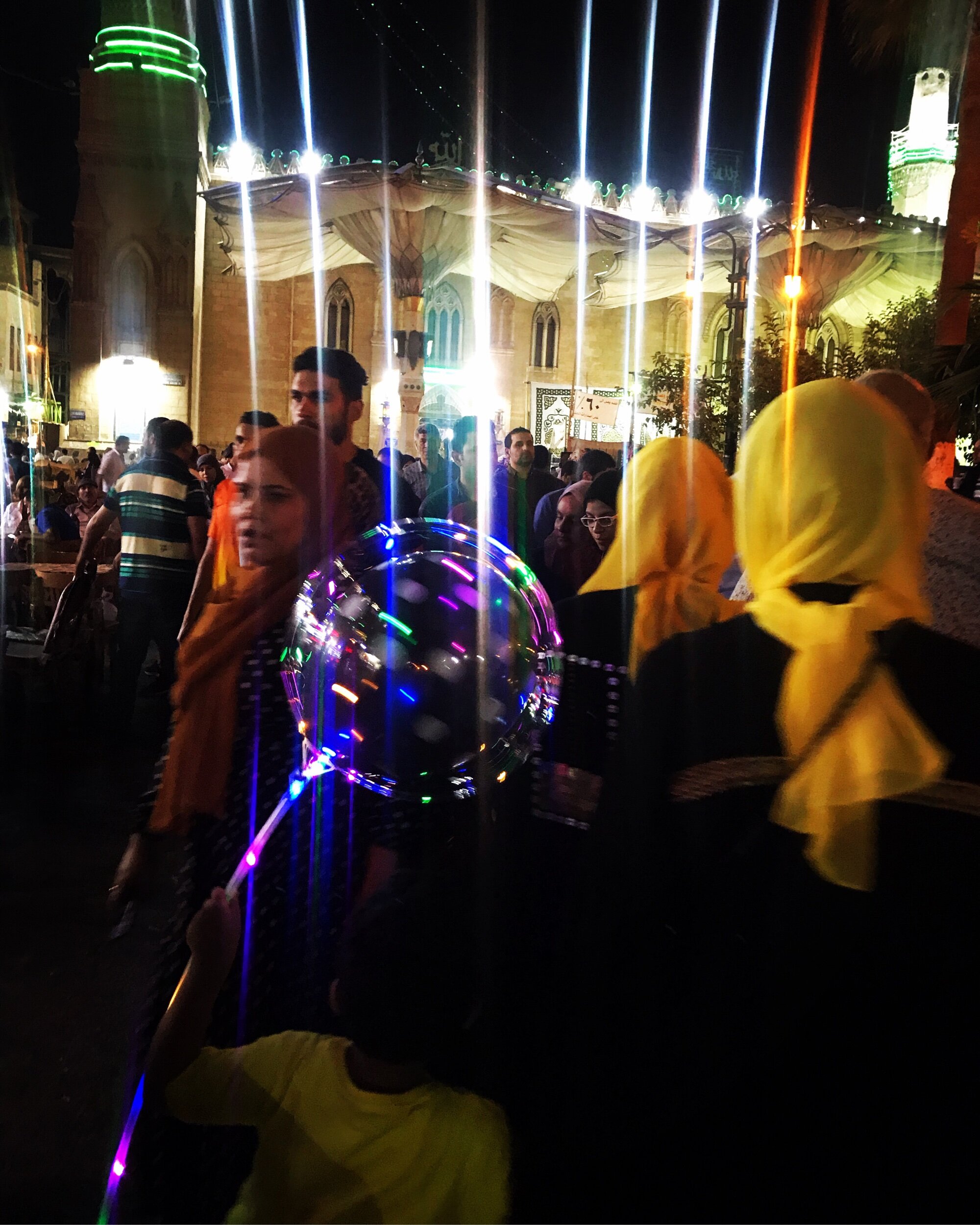
In May 2019, I travelled from Amsterdam to Cairo. Somewhere between my home and my hotel room, I wrote a poem. Sometime after I landed, I walked around the neighbourhood of my hotel. On that first night already, wrapped in the warmth of the evening, I started capturing my yearning to feel home in an estranged city.
i am happiest in airports and in train stations,
in those spaces where you wave goodbye from,
where:
you kiss your lover before you forget their faces forever,
you hug thin air (after all, don’t you just reap what you sow).
i am happiest when i land on a place
i don’t know
and where no one knows me.
where i may not have deciphered the language(s)
yet
my whole senses come alive in trying
- failing, succeeding and failing but still trying -
to capture an utterance of it.
all those sensations:
i live for.
(i find myself in movement.)
I stayed less than a week in Cairo. Yet, it was enough for me to feel like I was in the presence of an old friend. The kind you don’t see for years but always hold a place in your heart for. Because you know: they do the same for you.
One night, I spent hours with an incredible group of women for Iftar during Ramadan. While a few conversations happened in English, most of the evening was spent in Arabic.
Apart from the Arabic words used in the Turkish and French languages, it is not a language I speak, read or understand. Yet: I have loved every minute of those exchanges.
I have captured everyone’s energy in a myriad of ways and it made me think about the challenges and opportunities of multilingualism, and how to move beyond the idea that communication becomes impossible when different languages are not understood by all;
how to reject the very exclusive and excluding idea that to belong somewhere you have to know the language of that said place - to make matters worse: assuming that space has only one language, and assuming that language is only “spoken”.
Surrounded by the sounds, gestures and scripts of a language you do not know, you make a choice: you can get frustrated and lament at the fact that you do not understand, and allow your energy to turn so negative that you cannot engage with your surrounding anymore (or worse: shout at that person angrily that they should leave the space you are so certain is yours because of internalized nationalism and racism),
or
you embrace the unknown, you listen, you observe, you allow yourself to feel out of your comfort zone, you accept that you will miss certain things and that: is okay.
You will be okay.
You try to capture something that will speak to you, here and there: a gesture, a sound, anything that will trigger certain sensations in you. Then you can add yourself into the story, maybe that word you heard resembles one you know deep down in your history?
Just like as you walk down an unknown avenue and stumble upon a street name that sounds exactly like your last name.
I am free to make that association, to put myself into the story of that Cairene neighbourhood in that way. Is this disillusion? No: it is creating narratives where the collective experience comes alive, where empathy is not just a definition. It is choosing love and acceptance, instead of hate and exclusion. It requires effort and imagination.
I didn’t translate Cairo, Cairo translated me.
All photographs were taken at night and in movement with an iPhone camera by Canan Marasligil.
Writer, Literary Translator, Artist based in Amsterdam.
Canan (she/they) publishes a newsletter and podcast titled The Attention Span, taking the time to reflect, to analyse and to imagine our societies through writing, art and culture.


